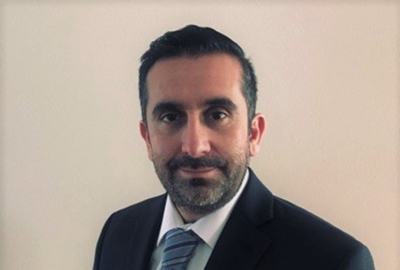Unlike Alice, we knew where we wanted to go, and as we travelled along we would ask people for more refined directions or to validate we were on the right track. Some people where exceptionally helpful, some gave half-way answers, others frankly did not want to be bothered, and every now and then we would encounter a Cheshire Cat.
Eventually we would arrive at our destination. Sometimes we were on time, but on other occasions late, as we took a wrong turn or were a bit lost — we may even have had our map upside down — and just did not want to ask for directions. Sometimes, we were lucky and arrived a little ahead of schedule as we drafted our route perfectly or we came across a wise pedestrian who knew the landscape and gave us a useful tip. Something similar can occur with our careers.
Whether we are right out of college in our first professional job or somewhat later in our careers, we have all begun our internal audit journey. A voyage in this rewarding profession exposes us to so much in our organizations, and at some point, we ask ourselves what path we need to take to become a chief audit executive (CAE).
Maybe for some us our first role in the profession is CAE. Maybe some of us are rotating through an internal audit department or feel we have been in internal audit for too long and are questioning what we need to do to transition out and become a team leader or a chief "something" in that next role. Regardless, we are all asking, where am I right now, what is my destination, and how do I arrive at where I want to go? Well, think of The IIA's Competency Framework as your road map.
The Competency Framework is a tool that can assist you in developing a plan, regardless of where you are in your career. While this versatile tool assists professionals at a personal level, it also can support internal audit leaders in creating talent development programs for their teams. Like mentioned in The IIA's Insights to Quality, How the IIA Competency Framework Supports Successful Internal Audit Practices, the framework can aid in other efforts such as succession planning, decision-making on use of subject-matter experts for specific engagements, and other talent management initiatives.
The framework presents four competencies: professionalism, performance, environment, and leadership and communication. For each of these four pillars, the framework illustrates a realm of key knowledge areas (e.g., ethical behavior, professional development, engagement planning, information technology, audit plan, and coordinating assurance efforts) to assist anyone in becoming a more well-rounded professional. At the same time, the framework provides three distinct competency levels: general awareness, applied knowledge, and expert practitioner. Whether an entry level auditor or seasoned executive, you may find yourself new to a knowledge area and your competency would then fit under the general awareness level. At the same time, you may be well-versed in another knowledge area and therefore considered to have applied knowledge or fall under the expert level. If that is the case, you can still advance and build upon that existing knowledge to strengthen your skills.
Following the analogy of the map, the framework can help you assess where you are, highlight your destination, and develop the path you need to travel to arrive there. It can help you triangulate competencies, knowledge areas, and your competency levels for each. Every internal audit practitioner should frequently refer to the Competency Framework. But remember, once you have built your map and traced your route, you ought to continually ask yourself and others along the way if you are on the right path. As you do that, you come across that wise pedestrian (e.g., a fantastic mentor, superb boss, marvelous colleague, or a sarcastic Cheshire Cat) who gives you that instrumental tip or sheds some light on your path.
Keep in mind also that reaching a desired competency level in one area can highlight the need to polish another area. There will be new risks and opportunities along the journey, and throughout your career you will encounter other professionals inside and outside internal audit who can help you validate or recalibrate your route. Perhaps you are very technically competent in one area, but new technological tools have come out and you need to reskill or upskill along the way. Perhaps you need to take a slight detour to sharpen your communication skills.
Each career path is unique, the route may not be linear but it is your route, your career. There could be detours along the way, but keep focused and remain resilient as you reach your specific destination. Do not fall into the trap of Alice, who simply did not know where to go and just wanted to get somewhere.



